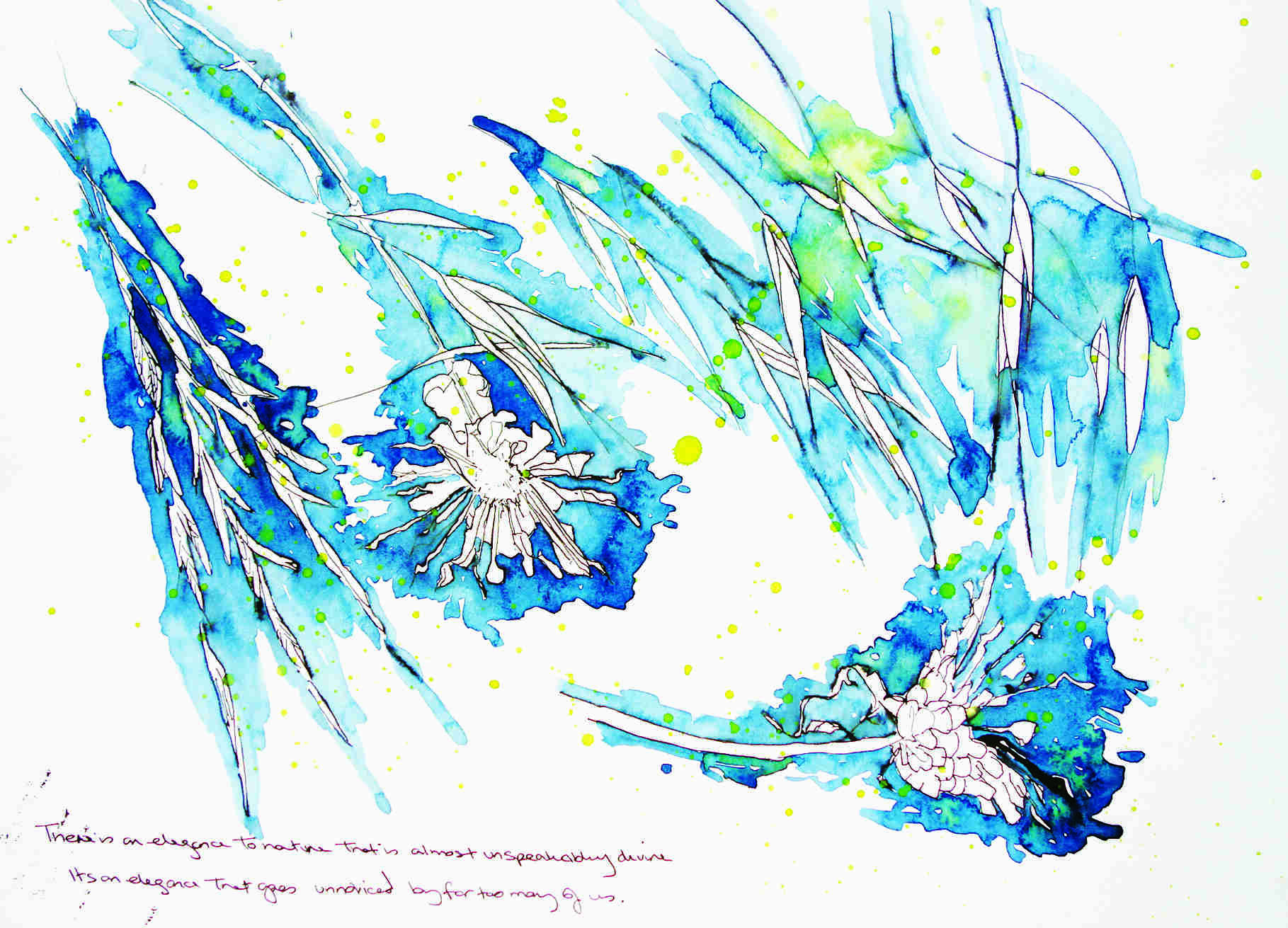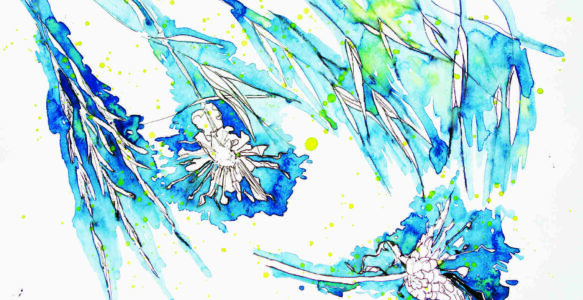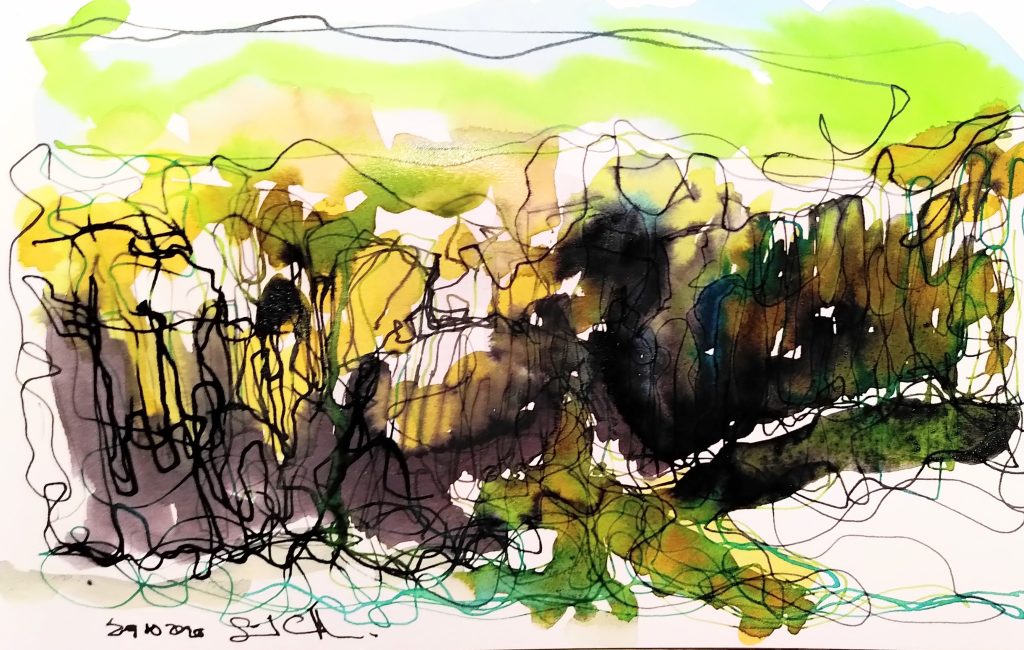Rewild your imagination
“Imagination is more important than knowledge. Knowledge is limited. Imagination encircles the world.”
Albert Einstein
Take a moment to picture what an imaginative childhood looks like. What are the surroundings? What does an imaginative child get up to? What words describe this?
For me, the words that come up are freedom, spaciousness, exploration, open-ended play, and an element of risk. Growing up in the 70s in the countryside with quieter roads we had the freedom to explore outside and on our own. Most of my childhood memories are of creating houses, and all sorts of worlds in the garden, local forests and in the tunnels underneath hedgerows. We were wild things!
“Children are born to be creative like eagles are born to soar”
(K H Kim)
However more recently, creativity research is showing that imagination amongst children is declining. This is due to the rise of individualistic cultures and the stronger emphasis on rationality, science, knowledge and information which weakens the use of imagination and intuition (K H Kim and Mulgan).
Current education systems foster hierarchy and conformity through scoring systems and mass preparation for the same tests, they avoid collaboration — as points are for individual achievement, they focus on results of test scores and emphasise select focused fields.
As a result, children are losing originality, curiosity and passion and avoiding risk-taking. Their visions are narrower, their expectations are lower and due to extensive screen time short-sightedness, both literally and figuratively is increasing rapidly.
Amongst adults too there is a lack of imagination due to lack of time, increased stress, distraction and a culture of individualism and the complexity of the world. And there is a surprising lack of funding and research taking place in institutions working on social imagination and radical social change ideas. Innovation in the military and business receives more funding and brainpower than in society which is coinciding with social stagnation. (Mulgan)
The last 30 years have been apparently stable — but recent events are showing there have been rumblings behind the facades and masks of our structures for some time — and more than ever our future looks uncertain.
At a time of upheaval and challenge, we are suffering a deficit of optimism, hope and social imagination as we struggle to picture a desirable or even possible future. This is leading to general malaise around the world, a sense of lost agency and increasing fear for the future. The rights studio People can imagine their own lives or an apocalyptic collective future but not a positive collective future
“What we believe to be possible defines what we’re capable of creating”
Nassim Haramein
With current crises — we need to imagine a different future and I don’t believe the seeds of our future lie in military or business breakthroughs, trickle-down economics, industrialised education, increased individualisation and business as usual. I believe our future lies in the rewilding of our imaginations.
For a too long time, wild has meant something crazy, uncontrolled, violent, savage or extreme — it has been the opposite of civilised, colonised and obedient. A wild animal is something to be very cautious of. A wild child is one who is unruly. It is hoped that wildness is something that teenagers will ‘grow’ out of.
The Miriam Webster dictionary defines wild as living in a state of nature — not tamed or domesticated. This is a dangerous thing if you require order and obedience.
Rewilding is the process of bringing something back to its authentic and natural state, reversing the process of domestication and returning to a more self-willed state. Rewilding people is learning from the standpoint of indigenous people — people who were in an intimate relationship with the land and the elements.
I have been thinking about ways that you can begin to rewild your imagination — I have listed some of them below. They include:
Rewilding your imagination, by
- Getting away from screens and…
- Allowing time to be bored — it can be really uncomfortable if you’ve been avoiding it — but try it for a few minutes each day.
- Spending time in nature. Click here for an article I wrote on ways nature can enrich your creativity.
- Reading outside your standard perspective to challenge your thinking and imagination.
- Coming back to your physical senses where you can access your imagination more readily. Click here for an article I wrote on ways to come back to your senses.
- Listening to music without lyrics.
- Writing for fun e.g. a poem about something ordinary or imagining the story behind images and art – creating a narrative.
- Playing improvisational games e.g. Pictionary, charades or Rapidough
- Learning a musical instrument
- Have stimulating conversations — ask powerful questions. Click here for an article I wrote on the art of powerful questions.
- Rewilding your garden or allotment or if you have access to a patch of land, let some of it go wild. Watch what wildness looks like — don’t spray or weed or interfere — let yourself be curious about what wildness is.
- Support rewilding projects e.g. Trees for life — Rewilding the Scottish Highlands
Rewilding children’s imagination, by
- Supporting them to stand up and have their say.
- Spending time exploring in nature with them
- Creating songs, stories, poems and plays with them.
- Teaching or learning with them how to mend and make.
- Supporting alternative educational models e.g. Sudbury schools and Forest schools
- Creating community containers for a child’s imagination. Click here for an article I wrote on lessons I learned from living in Eco-villages.
Rewilding our collective imagination by
- Finding or creating a group or a think tank where you can discuss, explore share and develop new ideas.
- Growing food and/or supporting locally grown food.
- Reduce the number of items that you buy and learn how to mend and make using your hands.
- Asking challenging questions of your politicians — not about short-term gains but long-term solutions for our children
- Using the platforms you have to amplify those whose voices go unnoticed. Who can you lift up?
- Considering and questioning some of the tenets of our current social, political and economic structures — like exponential growth, what recession means, and why going slower and showing emotion are perceived as weaknesses.
Rob Hopkins says that there are four things that we need to rekindle our imagination:
- Time and space to be imaginative e.g. shorter working weeks and flexible working hours.
- Places in our villages, towns, and cities where imagination can be invited and fired up in different ways.
- Practices — things that we do as groups, and political parties that invite people to be imaginative.
- Pacts — e.g. local councils agreeing on strategies that support ideas generated thoughtfully and creatively by communities.
Rewilding our organisations and businesses by
- Exploring new kinds of business models eg The Fourth Sector and Spiral Dynamics.
- Getting clear on company values, mission and vision — and ensuring that they align with a vision of the future that considers the next seven generations.
- Trying inclusive and participatory decision-making methods that bring people together to make decisions
- Getting new perspectives on company ideas; exploring different ways to look at problems.
- Bringing feeling into the workplace “we need a new rigour, and that is a rigour of feeling, to change systems and culture we must feel differently, and not just change the map of where we want to go.” Rights Studio
- Rewarding creativity and imagination.
- Slowing down — Increase listening skills and mindfulness
And we need a change in consciousness:
“…radical social imagination always entails some shift in consciousness, and some progress to a more ethical, richer, deeper and broader consciousness. The biggest changes in retrospect are changes in ways of seeing; how people have come to see the connections between things, to empathise with strangers and enemies, or to see different groups as worthy of dignity and respect, as ends not just means”.
Geoff Mulgan from The Imaginary crisis
For more powerful ideas refer to The imaginary crisis and to Rob Hopkins’s book — “From What is to what if”.
We live in an unprecedented time in history, in a time of great change. Necessity is the mother of invention and imagination — and current and future crises will test our capacity to imagine and invent new ways of living. I believe that like never before our future generations need us to engage our imaginations to offer them the best chances of thriving.
Our imaginations are the golden threads that connect our bodies hearts and minds our past, our dreams, and our beautiful future.
This has been a lot of suggestions and perhaps lots to digest — but see what lands and what inspires, and let yourself follow one golden thread this week to unleash and rewild a small parcel of your abundant imagination.
And please let me know how you get on.



